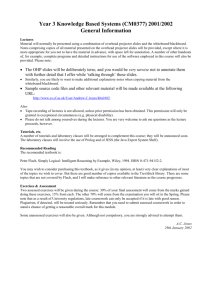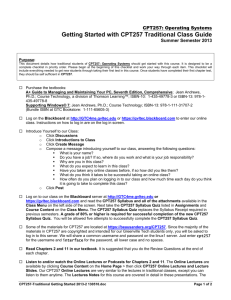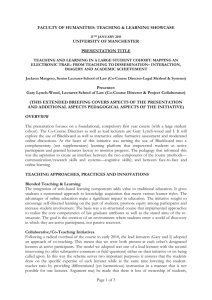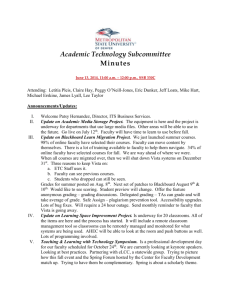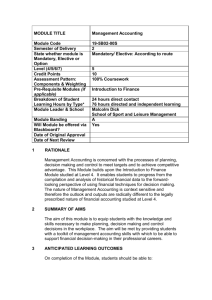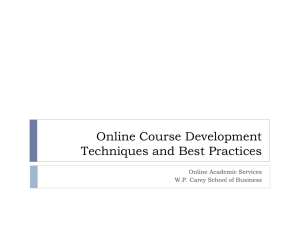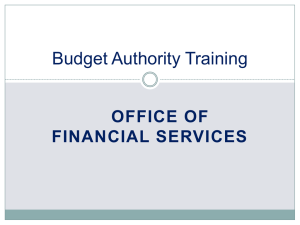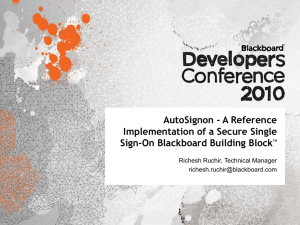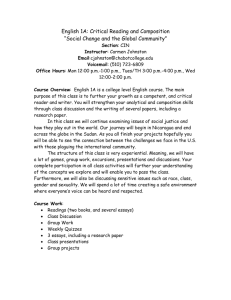Using Blackboard to engage students in practical tutorial assignments
advertisement
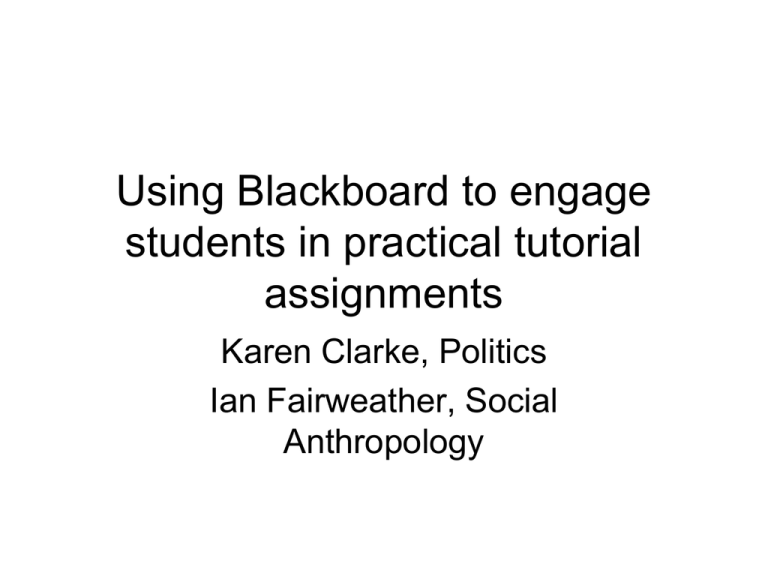
Using Blackboard to engage students in practical tutorial assignments Karen Clarke, Politics Ian Fairweather, Social Anthropology The course • Study skills/research methods course for 90+ 1st year social science students • Weekly one hour lecture & fortnightly tutorials • Tutorials involve exercises which students upload and peer review • Contribute 25% of final mark Problems and Aims • Problems: – – – – • Technical problems with uploading Peer review on fortnightly basis too cumbersome Time intensive for GTAs Poor student engagement with lectures Aims – – Improve the design of the Blackboard site for the tasks to make it more user-friendly (for both students and GTAs) Better integration of lecture, tutorial and independent learning, incorporating more problem based learning into the lecture time Progress • Redesign of aspects of the Blackboard site: – Inclusion of guided tour to Blackboard – Improved look and feel of pages: simpler and easier to find way around • Provision of Blackboard demonstrations • Laptops for tutors’ use in tutorials • Rethinking the tutorial exercises: individual assignments with fortnightly feedback from tutor • More interactive lectures, including guidance for tutorial assignments – Occasional use of classroom clickers – Blackboard quizzes Lessons so far • Improved attendance and participation • Keep it simple! – avoid being tempted to use complex features of Blackboard (e.g. selective release dates for different groups) – be aware of need for cut-off date at very end of course to allow for excused late submissions • Importance of keeping up with returning work to students • Use lectures to provide opportunities for feedback from students • Challenges Longer term – Developing the interactive aspect of the lectures – Providing useful content to students with a wide range of backgrounds • Possible Solutions – Use principles of interactive, cooperative learning in lectures to support students’ independent learning. – Move to ‘enquiry based learning’ – Blogs and/or wikis to develop the collaborative and problem based aspects of teaching.
